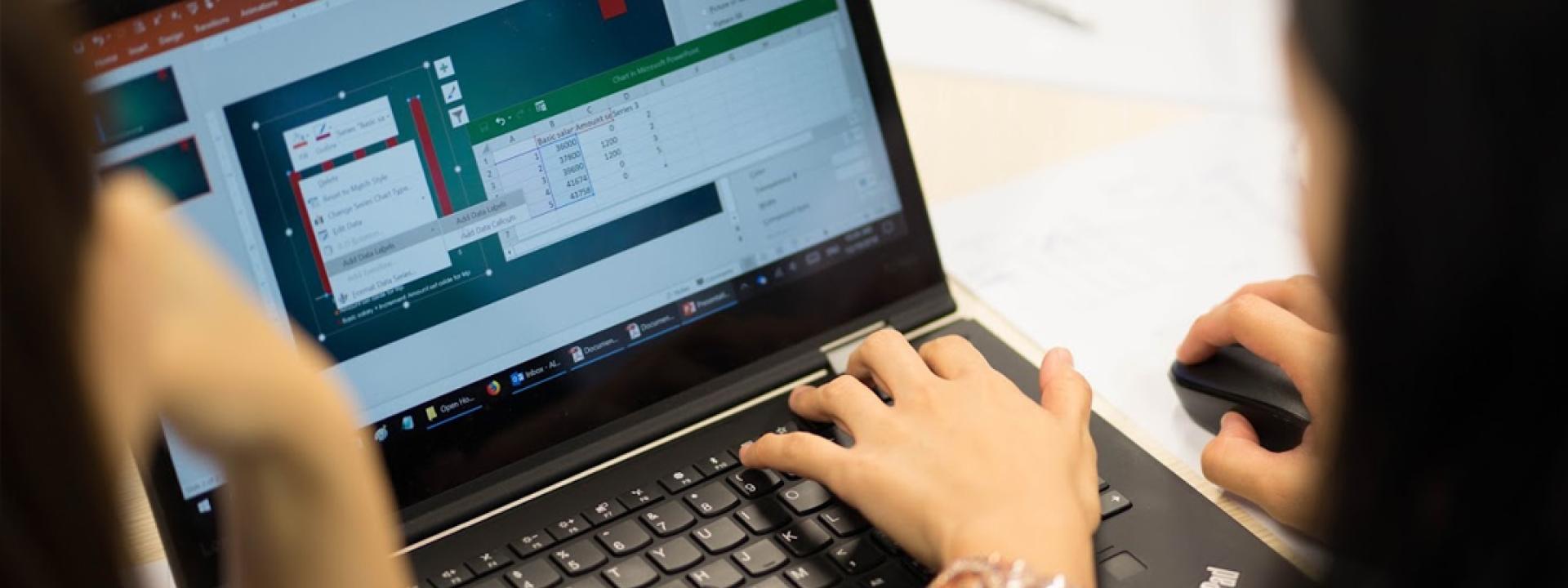![[FA] SIT One SITizen Alumni Initiative_Web banner_1244px x 688px.jpg](/openhouse2025/sit-teaching-and-learning-academy/openhouse/sit-teaching-and-learning-academy/centre-professional-communication/directory/sites/default/files/2024-12/%5BFA%5D%20%20SIT%20One%20SITizen%20Alumni%20Initiative_Web%20banner_1244px%20x%20688px.jpg)

Applied Research
Infocomm Technology (ICT) is characterised by very rapid innovation cycles as well as an increasing divergence into narrow specialisations.
We work with industry at the cutting edge to drive innovation, but also a step back from the edge to research real-world solutions. Our strengths include the industry-proven nature of our research (with a large set of companies), and the ability to rapidly composite multidisciplinary teams to tackle research needs for industry. Our experts are happy to work together to solve challenging real-world problems.
In addition, we have secured substantial amounts of research funding from external parties, which is almost always enhanced by industry contribution. Many of our individual faculty work closely with industry on consultancy projects – something which is encouraged as a way of strengthening and maintaining industry relevance – while others have written textbooks or served as expert witnesses for intellectual property disputes. We deliberately formulate our research activities, where possible, to include students. This not only gives them a taste of applied industrial research but also prepares them for a future career working in related industries.
Research Groups
The ICT cluster maintains expertise across the main Computer Science and Engineering continuum with deep pockets of industry-proven capability in five distinct sub-areas characterised by our research groups:
Cybersecurity
The cybersecurity research group addresses a wide range of security topics that are needed by industry and government. Our research includes IoT security, drone security, web and mobile security, digital forensics, quantum computing, governance and OT security. We work with a large number of companies to evaluate and assess security, advise on cybersecurity operations and research at the cutting edge of this field.
Systems (Computer Science, Embedded, IoT)
The SIT Systems Section (S3) carries out applied research in the domain of software systems, networked systems, systems modelling & simulation, along with parallel & distributed systems. We work with industry, hospitals, government, start-ups and MNCs in a variety of Computer Science areas.
HCI and Immersification (covering AR and VR)
Human-Computer Interaction (HCI) research focuses on the design of interfaces between people and technology. SIT aims to produce usable and intuitive technologies for industry and design guidelines that are validated by science. Our specific areas of specialisation include autonomous vehicular interfaces, alternative speech, auditory and gestural interfaces, mobile/wearable interfaces, web accessibility, gamification design and immersive technologies such as AR, VR and XR.
AI and Data Science
The Data Science and AI Research Group undertakes a range of applied research projects with industry, related to data science and Artificial Intelligence. Areas include machine/deep learning, text mining, NLP (natural language processing), computer vision, audio & speech AI, explainable & secure AI, robot AI, data mining & expert systems, big data, and analytics in numerous domains.
Emerging technology (covering 5G, robotics, blockchain etc.)
The emerging technology research group harnesses and drives applied research in recent and upcoming areas such as 5G and future communications, financial technology, medical technology and educational technology. We track the latest developments and work with a range of industry partners from SMEs to MNCs to transform new research areas into impactful and exciting projects.
Consultancy
Many ICT cluster faculty work closely with industry on consultancy projects – something which is encouraged as a way of strengthening and maintaining industry relevance – while others have written textbooks. served as expert witnesses for intellectual property disputes or contribute as members of technical standards committees and industry bodies.
All of our research activities aim to be applied in nature, to deliver maximum impact to companies. We also try to include students in projects. This helps ready them for their future careers in industry, and expands the pool of high-quality work-ready graduates available to industry – as well as assisting greatly in technology transfer.
Do you have a project in mind? Reach out to our individual faculty (via research group webpages or faculty directory) to discuss the possibility of collaboration and consultancy.